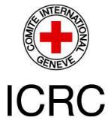/topics/governance
Governance
Our water woes: Ecological imbalance is the culprit!
Posted on 12 Mar, 2012 12:01 PMAuthor : Madhuranthakam Prabhakar Rao
Implementation of the interlinking of rivers project (ILRP): Bangladesh raises concerns
Posted on 12 Mar, 2012 11:50 AMAuthor : Md. Khalequzzaman, P.D.
Lessons for rural water supply - Assessing progress towards sustainable service delivery - India - IRC International Water and Sanitation Centre, The Hague
Posted on 10 Mar, 2012 04:24 PMThe study looked beyond a simple description of the situation towards broader processes of decentralisation and political leadership, in an attempt to unpack what has gone right or, as in many cases, what has gone wrong, within the rural water sub-sector.
Towards a progressive Indian and global climate politics - A CPR Climate Initiative Working Paper
Posted on 09 Mar, 2012 07:04 PMHowever, on each of these issues, there is a healthy under-current of domestic debate. Moreover, broad agreement on this perspective does not translate to strategic unanimity. There are three divergent positions within India: growth-first stonewallers, progressive realists, and progressive internationalists.
A critical assessment of climate change impacts, vulnerability and policy in India - Paper published in Present Environment and Sustainable Development
Posted on 09 Mar, 2012 05:40 PMThere is considerable disagreement on the extent of the changes in the variables of climate.
ICRC invites application for Water and Habitat Program Manager, Chhattisgarh - Apply by March 18, 2012
Posted on 09 Mar, 2012 10:04 AMContent courtesy: DevNetJobsIndia

The International Red Cross and Red Crescent (ICRC) is an independent, neutral organization ensuring humanitarian protection and assistance for victims of war and other situations of violence. It has a permanent mandate under international law to take impartial action for prisoners, the wounded and sick, and civilians affected by situation of violence. With its HQ in Geneva, Switzerland, the ICRC is based in around 80 countries and has a total of more than 12,000 collaborators. The ICRC is at the origin of both the International Red Cross / Red Crescent Movement and of international humanitarian law, notably the Geneva Conventions.
Drafting a new National water policy, 2012 without consulting the farmers would be meaningless
Posted on 04 Mar, 2012 11:02 PMAuthor : Phanish Sinha
India's ecological past: Review of a two volume book on environmental history in EPW
Posted on 02 Mar, 2012 02:18 PM
Utilisation of human urine as a source of nutrients for banana and maize cultivation - A compilation of research papers
Posted on 01 Mar, 2012 02:24 PMSource separated anthropogenic liquid waste (Human urine) - A potential plant nutrient for banana cultivation
In India, water problems are 'man made': Comments on the draft water policy-2012
Posted on 29 Feb, 2012 11:02 AMAuthor : Nagesh Hegde





